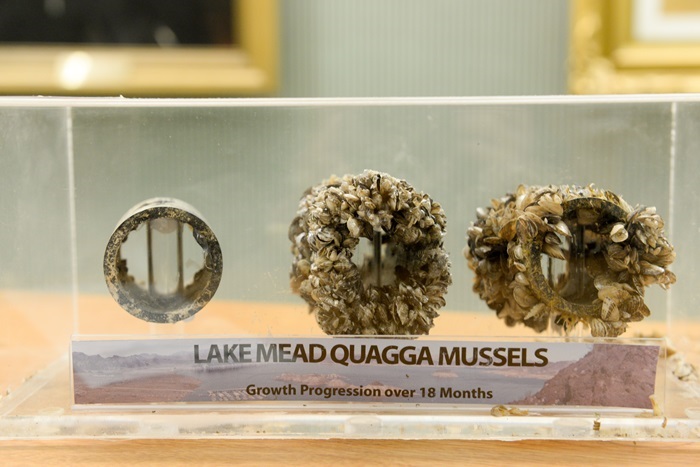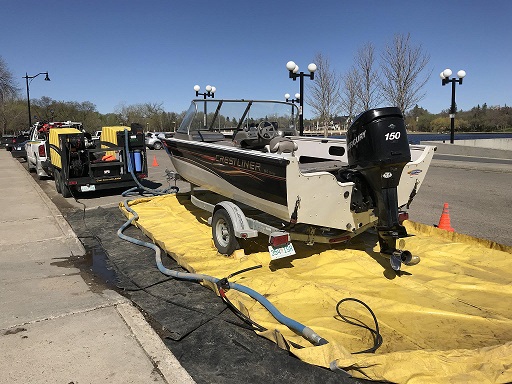Released on May 9, 2018
The Government of Saskatchewan has proclaimed May 6 to 12 as Aquatic Invasive Species Awareness Week to raise awareness of the risks to our province’s water bodies. Prevention efforts have been successful to date, and no invasive mussels have been found within Saskatchewan.
“Aquatic invasive species prevention is a priority,” Environment Minister Dustin Duncan said. “Our government focuses on education, promoting the Clean, Drain, Dry program, roadside boat inspections, decontaminations and regular monitoring of Saskatchewan’s busy water bodies.

The ministry will deploy six mobile watercraft decontamination units around the province to support the inspection and decontamination program. Four of the six decontamination units were purchased last year. Conservation officers, and other ministry and provincial parks employees are trained to support this initiative.
Last year, inspection efforts resulted in 1,212 watercraft inspections and provided invasive species information to 872 watercraft owners who entered Saskatchewan from the United States. Of those 2,084 watercraft, 307 received detailed inspections by conservation officers and 119 required decontamination. With the planned expansion of the inspection program this year, the ministry plans to significantly increase the number of inspections completed across the province in 2018.
Adult Invasive Mussel Monitoring (AIMM) is a partnership project with non-government organizations and other agencies to provide opportunities for the public to contribute to monitoring efforts across the province. The program provides an easy and effective way of detecting unwanted aquatic invasive mussels. AIMM is an easy-to-use and cost-effective monitoring program that provides a valuable tool for widespread early detection across many local waters in the province, and has a user-friendly program for reporting results back to the province. Last year, more than 90 waters were sampled for invasive mussels through the provincial monitoring program.

“We have amended provincial regulations to help prevent aquatic invasive species from entering our province and harming the waters they invade,” Duncan said. “We can now respond more quickly to neighbouring jurisdictions with aquatic invasive species that pose a threat to Saskatchewan’s waterways, and we have the legal authority to require watercraft to remove their boat plugs to comply with the province’s Clean, Drain, Dry Program.”
It is now mandatory for individuals transporting boats on all public roadways to remove drainage plugs prior to transport. All individuals transporting watercraft are also required to stop at inspection stations. Failure to do so may result in a $500 fine. Additionally, illegal transport of aquatic invasive species is subject to a $500 fine.
Saskatchewan partners with provincial organizations, Canada Border Security Agency, Department of Fisheries and Oceans, and provincial governments in British Columbia, Alberta, Manitoba and the Yukon to co-ordinate prevention on a regional basis.
Invasive mussels and other aquatic invasive species can be impossible to eliminate if they become established in a waterbody, and can cost millions of dollars to manage. They pose significant threats to infrastructure, hydropower facilities, wastewater plants, irrigation systems, fisheries and aquatic habitat, recreational activities, tourism and property values.
-30-
For more information, contact:
Michele McEachern
Environment
Regina
Phone: 306-787-0412
Email: michele.mceachern@gov.sk.ca


